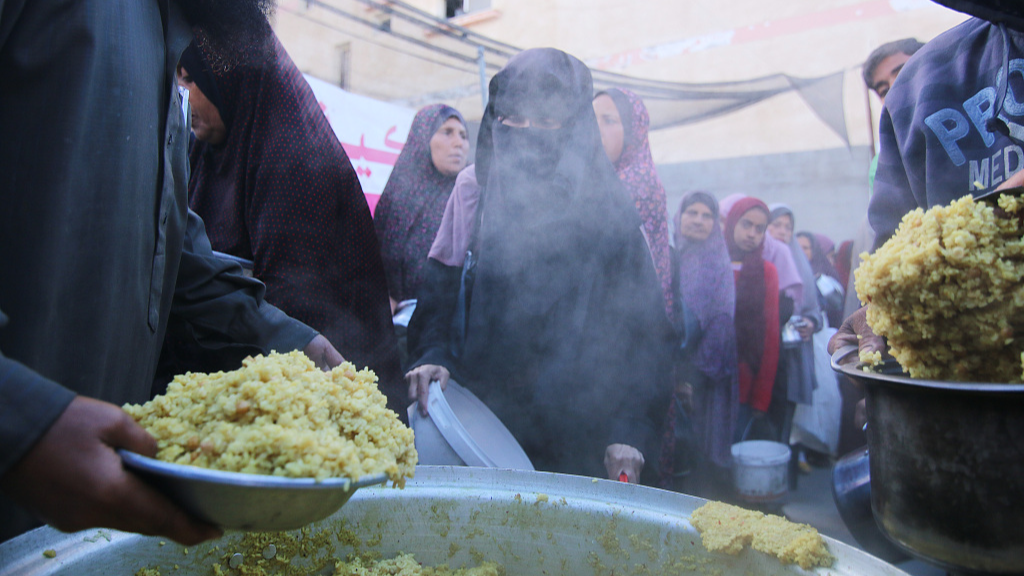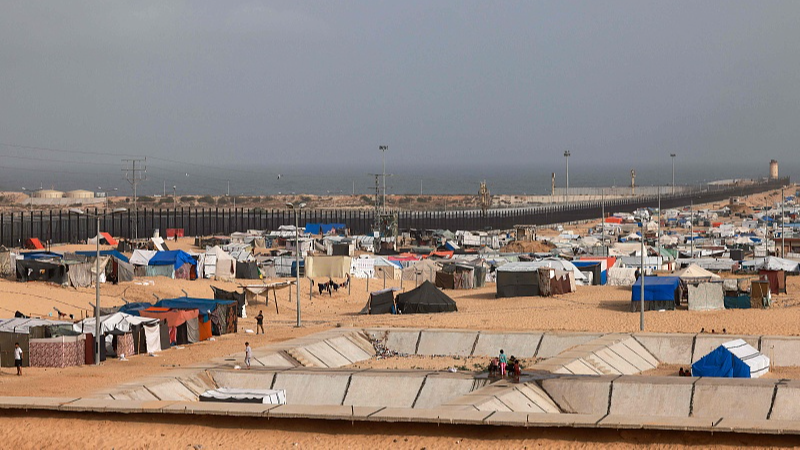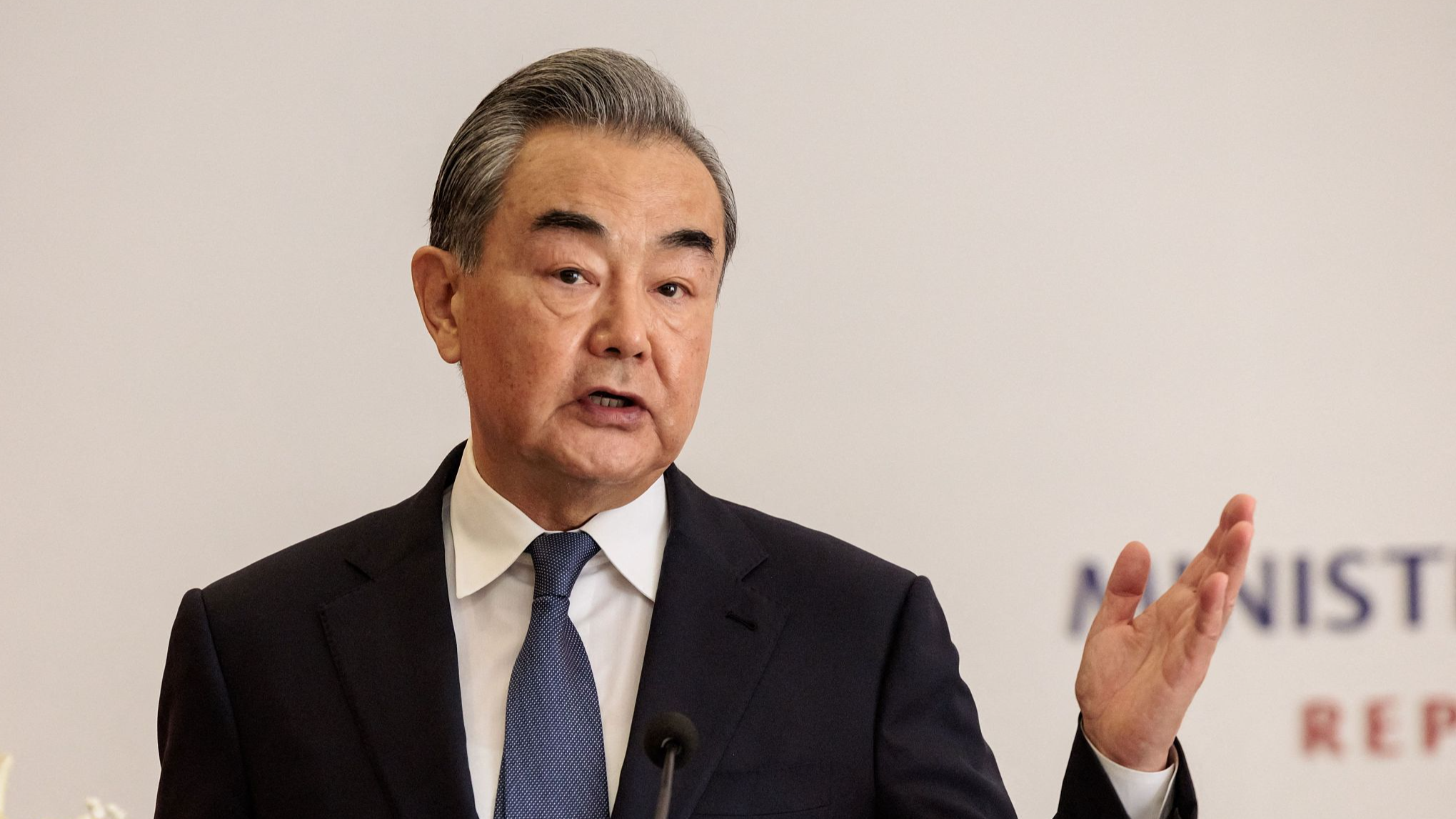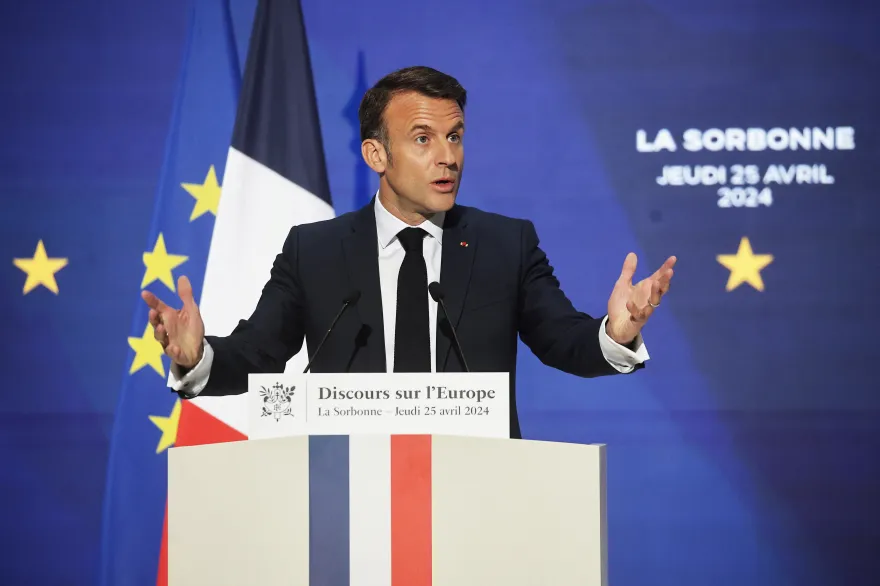The International Court of Justice on Thursday unanimously ordered Israel to take all necessary and effective action to ensure basic food supplies to Gaza’s Palestinian population and stop the spread of famine.
The ruling is an addition to a January 26 verdict, in which the ICJ ordered Israel to take all possible measures to prevent acts of genocide against Palestinians in the Gaza Strip, to halt incitement against Palestinians as a group, to preserve evidence and to take immediate measures to ensure humanitarian aid.
The order from the ICJ came as Israeli forces and Palestinian fighters battled in close combat around Gaza’s Al-Shifa Hospital, where the armed wings of Hamas and Islamic Jihad said they attacked Israeli soldiers and tanks with rockets and mortar fire.
Judges at the court said the people in the coastal enclave face worsening conditions.
“The court observes that Palestinians in Gaza are no longer facing only a risk of famine, but that famine is setting in,” the judges said in their order.
The new measures were requested by South Africa as part of its case that accuses Israel of state-led genocide in Gaza.
Senior Hamas official Basem Naim said the ruling did not go far enough and Israel must be ordered to end its military offensive to halt the suffering.
“We welcome any new demands to end this humanitarian tragedy in Gaza and especially in the northern Gaza Strip, but we hoped the court ordered a ceasefire as an absolute solution to all the miseries our people in Gaza are living through,” Naim told Reuters.
There was no immediate comment from Israel’s Foreign Ministry on the ICJ ruling. Israel has said it is making efforts to expand access for humanitarian groups to Gaza overland, through air drops and by ship.
Shortages of food, water and medicine
The United Nations Office for the Coordination of Humanitarian Affairs (OCHA) said on Thursday that more than 1.1 million people in the Gaza Strip are facing “an extreme level of food insecurity,” as Israel prevents aid from entering the enclave.
The statement, posted on social media platform X, emphasized the need to distribute sufficient food aid via land routes to save lives, especially in the northern areas of the Strip.
However, “access impediments persist, and time is running out,” the OCHA said.
Meanwhile, medical sources announced on Thursday the death of a child in the northern Gazan city of Beit Lahia due to famine and lack of available treatment, raising the number of deaths due to malnutrition in the enclave to 30.
The Israeli army said it continued to operate around the Al-Shifa Hospital complex in Gaza City after storming it more than a week ago. Its forces had killed around 200 gunmen since the start of the operation, “while preventing harm to civilians, patients, medical teams and medical equipment,” it said.
Gaza’s Health Ministry said wounded people and patients were being held inside an administration building in Al-Shifa Hospital complex, which the Israeli army has stormed more than a week ago. Five patients had died since the Israeli raid began due to shortages of food, water and medical care, the Hamas-run ministry said.
Al-Shifa, the Gaza Strip’s biggest hospital before the Israel-Hamas conflict, had been one of the few healthcare facilities even partially operational in north Gaza before the latest fighting. It had also been housing displaced civilians.
Source(s): CGTN

 News6 days ago
News6 days ago
 News6 days ago
News6 days ago
 News6 days ago
News6 days ago
 News2 days ago
News2 days ago
 News5 days ago
News5 days ago
 World7 days ago
World7 days ago
 News7 days ago
News7 days ago
 News5 days ago
News5 days ago


















